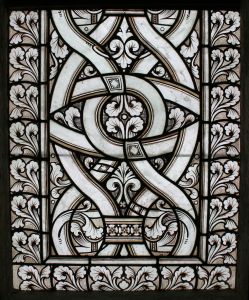

SOFTWARE patents are still #1 on the agenda here. The same goes for Groklaw, where almost every post is about this subject, including this latest post.
Draft Agreement on Unified Court 'unwise', concludes EPLAW
PatLit thanks Dr Jochen Pagenberg (President of the European Patent Lawyers' Association EPLAW and one of the most experienced patent scholars in Europe) for drawing the following highly pertinent criticisms of the proposed Unified Patent Court to its attention [this post will be cited later today on the IPKat weblog, following yesterday's post on the report of last week's Warsaw Conference here].
Killing EU innovation with a unitary "more patents!" court
[...]
I also got strong reactions from patent attorneys from Stallmans piece in the Guradian. They say that software patents are already established in the EU, why does he not understand that? That debate was over ten years ago! But thats not true. Its happening right here and now while software patents are ever more questioned and tried publicly. What happened ten years ago is coming into the public light - and it shames the patent institutions. Its also a trial of legitimacy. Where monopolist proponents try to establish software patents like MS: "We live in a world where we honor, and support the honoring of, intellectual property," says Ballmer in an interview. FOSS patrons are going to have to "play by the same rules as the rest of the business," he insists. "What's fair is fair." (see Glyn Moody on techdirt). A European court that protects the "users" of the patent-system would allow MS to litigate for licenses in one strike over all of EU.
It's not yet available online, but yesterday's Patents Court for England and Wales decision of Judge Birss QC (taking time off from his busy schedule in the Patents County Court to sit as a Deputy High Court Judge) in Halliburton Energy Inc’s Patent has already been announced, at something approaching the speed of light, as a Hogarth Newsflash. The news-flasher (if that be the correct term) is the IPKat's friend Richard Davis (Hogarth), instructed by Hoffmann Eitle on behalf of Halliburton. Normally this Kat would not deign to comment on a decision on so mundane and uncontroversial as the patentability of computer software, but this case is an exception. Why? Because it's the first time since the blog was founded in 2003 that a successful appellant, its instructing firm and the barristerial chambers have all commenced with the letter H.
[R]eally bad UK decision on [software patents]
By total coincidence, while the Kat was citing Daniel v Lions at the LIDC Conference, a whole group of Daniels was being cast to the lions the other end of Europe, in the lovely city of Warsaw. The cause of this was the Academy of European Law's conference, The Future Unified Patent Litigation System in the European Union, "organised in the framework of the Polish EU Presidency of the EU Council" which was billed as providing"... a platform for discussion on the new draft agreement on a Unified Patent Court presented by the Hungarian Presidency on 14 June 2011".What, perchance was to be discussed on this platform? The programme explained:"The objective of the conference is to analyse how issues raised by the Court of Justice of the European Union in its Opinion 1/09 on the previous version of the agreement regarding compatibility with EU law were addressed, as well as to promote an exchange of views between courts and practitioners on the functioning of the European Patent Court".The event commanded an all-star line-up of speakers.
Oracle listed more than 130 patent claims in its original complaint against Google for infringing Java patents in mobile operating system Android. The presiding judge felt that this was too many claims for a trial scheduled to last three weeks and suggested reducing it to three.
Four weeks before the trial is expected to start, Oracle has now set out its position. Fifteen claims will be looked at, plus eleven 'mirrored' claims. This 'mirroring' of claims extends them from the pure method to a combination with an apparatus or a machine-readable medium. The claims are taken from six different patents, but one of the original patents, number 6125447, is no longer part of the complaint.
Supreme Court Decides Software Law By Not Deciding
[...]
Did I hear someone mention software? Yes, though it has been a critical part of the economy for decades now, software remains a stumbling block for the courts. Last year’s patent law decision, Bilski v. Kappos demonstrated some of the stumbling.
Ask not for whom the patent troll sues, he sues you. It used to be patent trolls only bothered to sue large companies. After all, that’s where the big bucks were. Now, however, Innovatio IP, a new company that exists solely to shake money down for its Wi-Fi patents, is targeting individual branches of hotel, coffee shops and restaurant chains. You, with your home Wi-Fi access point, may be next.
None of these franchised businesses, which include Hyatt, Marriott, Wyndham, Ramada Inn, Best Western, Days Inn, Super 8 Hotels, Travelodge, Caribou Coffee, Cosi and Panera Bread, make or develop technology. All they do is offer Wi-Fi services. That’s enough, as reported by Patent Examiner, for Matthew McAndrews, a partner at Chicago-based law firm Niro, Haller & Niro, and the lnnovatio lead litigator, to state, “We want you to continue to use this technology, we just want our client to get his due share. This is not a seat-of-the-pants, fly-by-night shakedown.”